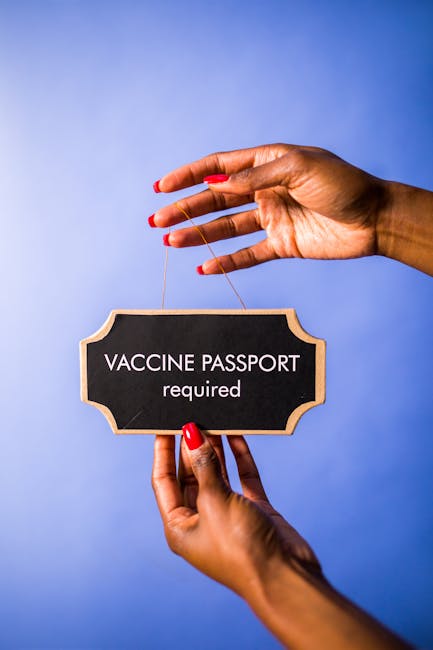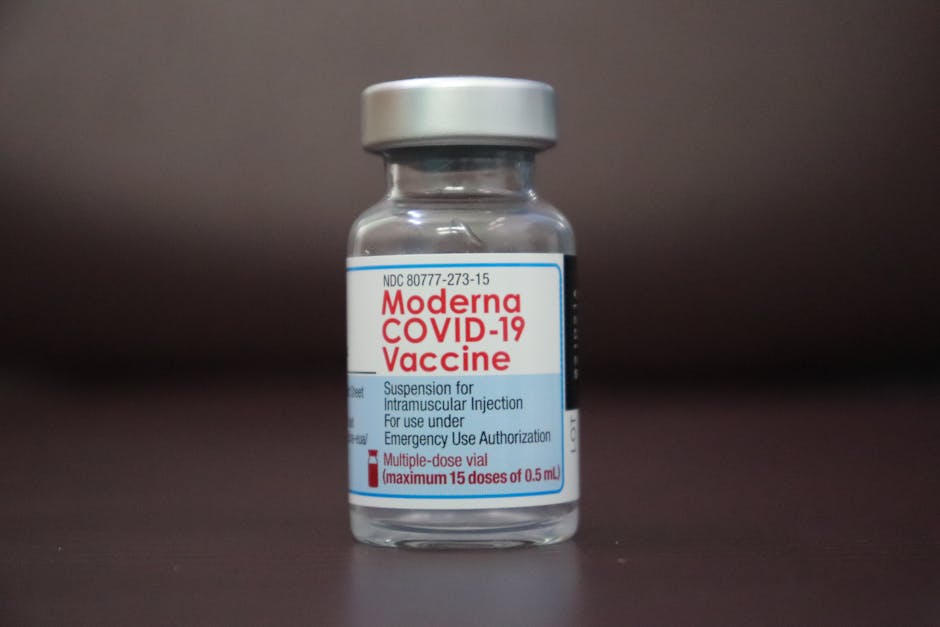FDA COVID-19 Vaccine Warnings: Understanding the Risks and Benefits
The COVID-19 pandemic spurred an unprecedented effort to develop and deploy vaccines at an unparalleled speed. While the vaccines proved remarkably effective in preventing severe illness, hospitalization, and death, the FDA (Food and Drug Administration) issued warnings and updates regarding potential side effects. Understanding these warnings is crucial for informed decision-making. This comprehensive guide explores the FDA’s communications concerning COVID-19 vaccines, clarifying the risks and benefits to provide a balanced perspective.

Understanding the FDA’s Role in Vaccine Safety
The FDA plays a pivotal role in ensuring the safety and efficacy of all vaccines available in the United States. Their rigorous review process includes pre-clinical trials, clinical trials involving thousands of participants, and ongoing monitoring after vaccine authorization or approval. This post-market surveillance is critical for detecting rare or delayed adverse events that might not be apparent during the initial clinical trials.
The FDA’s authorization and approval processes are designed to balance the known and potential risks of a vaccine against its benefits. In the case of the COVID-19 vaccines, the urgency of the pandemic necessitated a faster-than-usual timeline, but the FDA maintained its commitment to rigorous safety standards. Transparency is a key principle, and the agency continuously updates its information based on new data and analysis.
Commonly Reported Side Effects and FDA Warnings
Many individuals experience mild side effects after receiving a COVID-19 vaccine. These are generally considered normal signs that the body is building immunity and usually resolve within a few days. Common side effects include:
- Pain, redness, or swelling at the injection site
- Fatigue
- Headache
- Muscle aches
- Chills
- Fever
While these are common, the FDA has issued warnings about more serious, though rare, side effects. These include:
Myocarditis and Pericarditis
Myocarditis (inflammation of the heart muscle) and pericarditis (inflammation of the lining around the heart) have been reported, particularly in younger males after receiving mRNA vaccines (Pfizer-BioNTech and Moderna). The FDA has issued warnings emphasizing the importance of seeking medical attention if experiencing chest pain, shortness of breath, or an irregular heartbeat after vaccination. While these cases are rare, the FDA continues to monitor this issue closely.
Blood Clots (Thrombosis with Thrombocytopenia Syndrome – TTS)
TTS, a rare but serious condition involving blood clots and low platelet counts, has been associated with the Johnson & Johnson/Janssen vaccine. The FDA issued warnings and updates regarding this risk, including recommendations for careful monitoring and specific treatment protocols. This risk is exceedingly rare, but the FDA’s transparency in addressing it emphasizes the importance of post-market surveillance.
Guillain-Barré Syndrome (GBS)
GBS, a rare neurological disorder, has been reported in association with some COVID-19 vaccines, although the causal link remains under investigation. The FDA continues to monitor reports and provide updates on the potential association between GBS and specific vaccines.
Interpreting FDA Warnings and Making Informed Decisions
It’s crucial to understand that the FDA’s warnings do not necessarily indicate that vaccines are unsafe. Rather, they reflect the agency’s commitment to transparency and thorough monitoring. The exceedingly rare nature of many of these serious side effects should be weighed against the significant benefits of COVID-19 vaccination in preventing severe illness, hospitalization, and death.
When considering the risks and benefits, several factors should be considered:

- Individual risk factors: Pre-existing health conditions can influence the risk-benefit assessment.
- Age: Certain side effects have been reported more frequently in specific age groups.
- Vaccine type: The specific vaccine used may have a different risk profile.
- Severity of COVID-19: The potential risks of COVID-19 infection should be considered alongside the risks of vaccination.
Consulting with a healthcare professional is essential for making an informed decision. They can assess your individual risk factors and provide personalized guidance based on your medical history and circumstances. They can also help you understand the FDA warnings in the context of your overall health.
Ongoing Monitoring and Future Updates
The FDA’s work doesn’t end with vaccine authorization or approval. The agency maintains ongoing surveillance through various systems to detect any potential safety signals. This includes analyzing data from the Vaccine Adverse Event Reporting System (VAERS), which allows healthcare professionals and individuals to report suspected adverse events following vaccination. The data collected through VAERS and other surveillance systems are critically important for detecting rare events and informing the public health response.
The FDA regularly updates its safety information and recommendations based on the accumulating evidence. It is crucial to stay informed by consulting the FDA website and other reliable sources for the most up-to-date information.
Conclusion
The FDA’s issuance of warnings regarding COVID-19 vaccines reflects a commitment to transparency and rigorous safety monitoring. While rare serious adverse events have been reported, the overwhelming evidence demonstrates that the benefits of COVID-19 vaccination significantly outweigh the risks for the vast majority of individuals. Informed decision-making involves understanding the FDA’s warnings, considering individual risk factors, and consulting with healthcare professionals to determine the best course of action.
This information is for educational purposes only and should not be considered medical advice. Always consult with a healthcare professional for any health concerns or before making any decisions related to your health or treatment.


